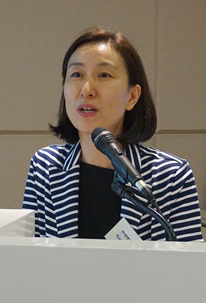Even though medical colleges or institutions punish people on charge of sexual violence or sexual harassment, there are many cases of offenders re-entering schools and hospitals.
Accordingly, experts said medical colleges should provide education to prevent sexual violence and work out manuals of countermeasures that can be applied to all medical institutions to prevent sexual abuse, sexual harassment in advance.

Korean Medical Women’s Association (KMWA)한국여자의사회 held a meeting with Korean Women Lawyers Association (KWLA)한국여성변호사회 at Hotel President in downtown Seoul Monday to discuss gender equality and sexual violence issue in the medical community.
"It is difficult for victims to file civil and criminal suits, but sometimes, victims are forced to live with offenders in the same space," said Kim Hyun-ah김현아, a director at KWLA.
According to Kim, offenders committed collective sexual harassment for a student at Korea University School of Medicine in 2011, were sentenced to two years and six months’ imprisonment on the charge of sexual violence, and were expelled from the university. But two of them re-entered the medical school of another university. In the case of the incident of the collective sexual harassment in Inha University School of medicine, assaulters got punishment such as indefinite suspension, limited suspension, probation, and community service, but some of them are taking classes with the victims in the same room.
Kim said if a professor is an attacker, hospitals or university tried to hide the incident and only if the incident becomes a social issue, they punish the aggressors, but re-hire them later.
An assistant professor at Gyeongsang National University Changwon Hospital창원경상대병원 was sentenced to three months of suspension on the charge of assault and sexual harassment against a nurse, but returned to the hospital and even got promoted to a full professor in less than four months.
“Because there is a limit to internal punishment, it is important to prevent this kind of incident,” Kim said. “People who need to take the preventive education of sexual violence don’t receive the education. The education is necessary for both male and female students at medical colleges. Understanding their right will be very helpful for female students.”
In particular, Kim said systematic measures are necessary to realize gender equality in medical institutions and reflect the effort of medical institutions to prevent sexual violence in their assessment, provide continuous mentoring between female doctors and students, and develop a manual to cope with the situation.
KMWA is also making a guideline to prevent sexual violence that can be used by medical institutions. “We are researching to make the preventive guideline and hope to take initial countermeasures by sharing the information with KWLA in advance,” said Kim Nong-ok김봉옥, chairman of KMWA.

